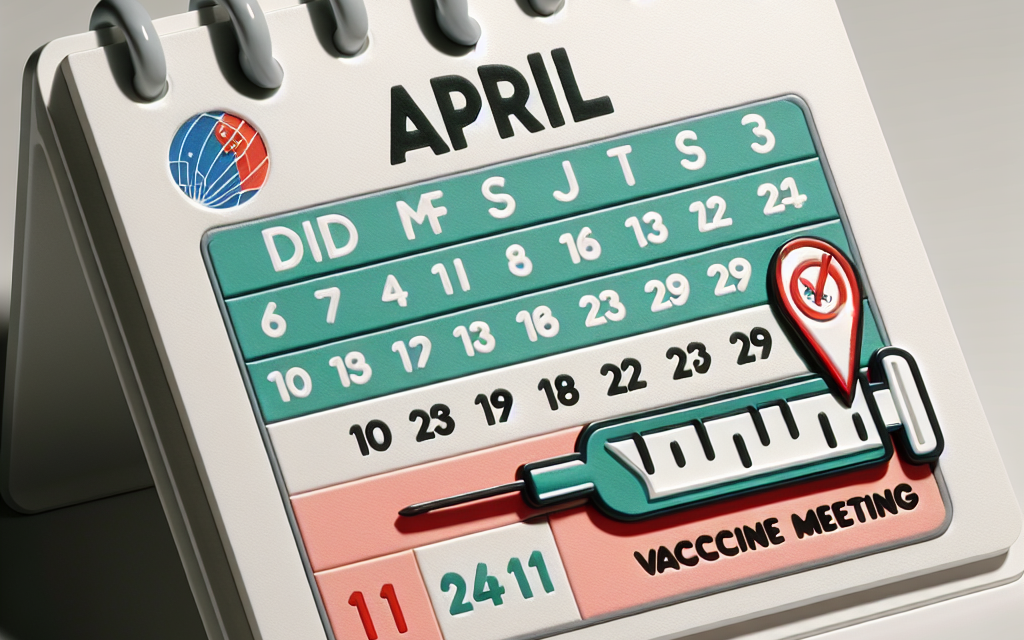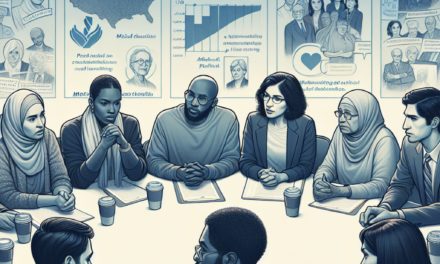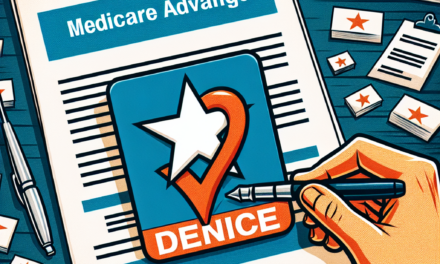CDC Vaccine Meeting Rescheduled for April: What You Need to Know
The Centers for Disease Control and Prevention (CDC) plays a pivotal role in public health, particularly in the realm of vaccinations. The recent announcement regarding the rescheduling of a significant vaccine meeting for April has raised questions and concerns among healthcare professionals, policymakers, and the general public. This article delves into the implications of this meeting, the importance of vaccines, and the broader context of vaccination efforts in the United States.
Understanding the CDC’s Role in Vaccination
The CDC is a national public health institute in the United States, under the Department of Health and Human Services. Its primary goal is to protect public health and safety through the control and prevention of disease, injury, and disability. One of the CDC’s most critical functions is overseeing vaccination programs, which are essential for controlling infectious diseases.
Vaccines have been instrumental in reducing the incidence of various diseases, including measles, polio, and influenza. The CDC provides guidelines and recommendations for vaccination schedules, ensuring that the population is adequately protected against preventable diseases. The agency also conducts research, monitors vaccine safety, and educates the public about the importance of immunization.
In recent years, the CDC has faced challenges related to vaccine hesitancy, misinformation, and the emergence of new diseases. The rescheduled meeting in April is expected to address these issues and discuss strategies to enhance vaccination efforts across the country.
The Significance of the Rescheduled Meeting
The rescheduled CDC vaccine meeting is significant for several reasons. It serves as a platform for experts to discuss current vaccination strategies, review data on vaccine efficacy and safety, and address public concerns. The meeting will likely focus on several key areas:
- COVID-19 Vaccination Efforts: The ongoing pandemic has highlighted the importance of vaccines in controlling infectious diseases. The meeting will likely address the current status of COVID-19 vaccinations, booster shots, and the emergence of new variants.
- Vaccine Hesitancy: Misinformation and skepticism surrounding vaccines have led to increased hesitancy among certain populations. The meeting will explore strategies to combat misinformation and promote vaccine confidence.
- Childhood Vaccination Rates: The CDC has reported declines in routine childhood vaccinations during the pandemic. The meeting will discuss initiatives to improve vaccination rates among children.
- Global Vaccination Efforts: The CDC collaborates with international organizations to promote vaccination worldwide. The meeting may address global vaccination challenges and successes.
- Future Vaccine Development: The meeting will likely touch on advancements in vaccine technology and the development of new vaccines for emerging diseases.
By addressing these critical areas, the CDC aims to strengthen the nation’s vaccination efforts and ensure that the public remains informed and protected against preventable diseases.
COVID-19 Vaccination Efforts: A Continuing Challenge
The COVID-19 pandemic has underscored the importance of vaccines in controlling infectious diseases. Since the introduction of COVID-19 vaccines, the CDC has been at the forefront of vaccination efforts, providing guidance on vaccine distribution, eligibility, and safety. However, challenges remain.
As of early 2023, vaccination rates have plateaued, with many individuals remaining unvaccinated or under-vaccinated. Factors contributing to this include:
- Misinformation: The spread of false information about vaccine safety and efficacy has fueled skepticism among certain populations.
- Access Issues: Some communities face barriers to accessing vaccines, including transportation challenges and lack of healthcare resources.
- Political Polarization: Vaccination has become a politically charged issue, leading to divisions in public opinion.
The rescheduled meeting will likely focus on strategies to address these challenges. For instance, the CDC may discuss targeted outreach efforts to educate communities about the benefits of vaccination and dispel myths surrounding COVID-19 vaccines. Additionally, partnerships with local organizations and healthcare providers may be emphasized to improve access to vaccines.
Case studies from various states have shown that community engagement and education can significantly impact vaccination rates. For example, in a pilot program in rural areas of Texas, local health departments collaborated with community leaders to host informational sessions about COVID-19 vaccines. As a result, vaccination rates in those areas increased by over 30% within three months.
Combating Vaccine Hesitancy: Strategies for Success
Vaccine hesitancy is a complex issue that requires a multifaceted approach. The CDC has recognized that addressing hesitancy involves understanding the underlying reasons for skepticism and tailoring communication strategies accordingly. Some effective strategies include:
- Building Trust: Establishing trust between healthcare providers and patients is crucial. Providers should engage in open conversations with patients, addressing their concerns and providing evidence-based information.
- Utilizing Social Media: Social media platforms can be powerful tools for disseminating accurate information about vaccines. The CDC may collaborate with influencers and community leaders to reach broader audiences.
- Personal Stories: Sharing personal experiences from individuals who have been vaccinated can help humanize the issue and encourage others to get vaccinated.
- Targeted Messaging: Tailoring messages to specific demographics can enhance their effectiveness. For example, messages aimed at young adults may differ from those directed at parents of young children.
- Community Engagement: Involving community organizations in vaccination efforts can help build trust and encourage participation. Local events, such as vaccination drives, can create a sense of community and support.
Research has shown that these strategies can lead to increased vaccine uptake. A study published in the American Journal of Public Health found that communities that implemented targeted outreach programs saw a 20% increase in vaccination rates compared to those that did not.
Addressing Declines in Childhood Vaccination Rates
One of the most concerning trends observed during the pandemic has been the decline in routine childhood vaccinations. The CDC reported that vaccination rates for diseases such as measles, mumps, and rubella (MMR) dropped significantly in 2020 and 2021. This decline poses a serious risk to public health, as it can lead to outbreaks of vaccine-preventable diseases.
Several factors contributed to this decline:
- Disruption of Healthcare Services: Many families postponed routine healthcare visits during the pandemic, leading to missed vaccinations.
- Fear of Exposure: Parents may have been hesitant to take their children to healthcare facilities due to fears of COVID-19 exposure.
- Increased Misinformation: The spread of misinformation about vaccines has also affected parents’ decisions regarding their children’s vaccinations.
The upcoming CDC meeting will likely address strategies to improve childhood vaccination rates. Initiatives may include:
- Public Awareness Campaigns: The CDC may launch campaigns to remind parents of the importance of routine vaccinations and the risks associated with delaying them.
- Collaboration with Schools: Partnering with schools to promote vaccination can help reach parents and encourage compliance with vaccination requirements.
- Flexible Vaccination Options: Offering extended hours for vaccinations and mobile clinics can improve access for families.
Case studies from various states have demonstrated the effectiveness of these initiatives. For instance, a program in California that provided free vaccinations at schools resulted in a 25% increase in MMR vaccination rates among kindergarteners within one year.
Global Vaccination Efforts: A Collaborative Approach
The CDC’s role extends beyond national borders, as it collaborates with international organizations to promote vaccination worldwide. Global vaccination efforts are crucial for controlling infectious diseases that do not recognize national boundaries. The rescheduled meeting may address several key aspects of global vaccination initiatives:
- Equitable Access: Ensuring that vaccines are accessible to all countries, particularly low- and middle-income nations, is a priority. The CDC may discuss partnerships with organizations like GAVI and the World Health Organization (WHO) to improve vaccine distribution.
- Addressing Vaccine Misinformation Globally: Misinformation is a global issue that can hinder vaccination efforts. The CDC may explore strategies to combat misinformation on an international scale.
- Research and Development: Collaborative research efforts can lead to the development of new vaccines for emerging diseases. The meeting may highlight successful partnerships that have resulted in innovative vaccine solutions.
For example, the COVAX initiative, which aims to ensure equitable access to COVID-19 vaccines, has been a significant focus of global vaccination efforts. The CDC’s involvement in COVAX has helped facilitate the distribution of vaccines to countries in need, demonstrating the importance of international collaboration in public health.
The Future of Vaccine Development: Innovations on the Horizon
The field of vaccine development is rapidly evolving, with new technologies and approaches emerging to enhance vaccine efficacy and safety. The rescheduled CDC meeting may provide insights into the future of vaccine development, including:
- mRNA Technology: The success of mRNA vaccines for COVID-19 has opened new avenues for vaccine development. Researchers are exploring the potential of mRNA technology for other infectious diseases, such as influenza and Zika virus.
- Universal Vaccines: Efforts are underway to develop universal vaccines that provide broad protection against multiple strains of a virus. This could significantly reduce the burden of seasonal flu and other viral infections.
- Adjuvants and Delivery Systems: Innovations in adjuvants (substances that enhance the immune response) and delivery systems (such as microneedles) are being explored to improve vaccine effectiveness and patient compliance.
Case studies from recent vaccine trials have shown promising results. For instance, a study on a universal flu vaccine demonstrated a robust immune response across multiple strains, indicating its potential for widespread use in the future.
Conclusion: The Path Forward for Vaccination Efforts
The rescheduled CDC vaccine meeting in April represents a critical opportunity for public health officials, healthcare providers, and the community to come together and address the challenges facing vaccination efforts. By focusing on key areas such as COVID-19 vaccination, vaccine hesitancy, childhood vaccination rates, global initiatives, and future innovations, the CDC aims to strengthen the nation’s immunization programs and protect public health.
As we move forward, it is essential for individuals to stay informed about vaccination recommendations and to engage in open conversations with healthcare providers. By working together, we can overcome the challenges posed by misinformation, access issues, and vaccine hesitancy, ultimately ensuring a healthier future for all.
In summary, the upcoming CDC meeting is not just a routine gathering; it is a vital step toward enhancing vaccination efforts and safeguarding public health. The insights gained from this meeting will shape the future of immunization in the United States and beyond, emphasizing the importance of collaboration, education, and innovation in the fight against preventable diseases.





